“Boilers are in my blood,” explained 44-year-old Shane Hall, a third-generation Weil-McLain representative. Hall, of Huntington, W.V., has been a Weil-McLain manufacturer’s rep for more than 25 years, but his involvement in heating and boilers stretches back much further. “My father and grandfather were both in the business, so I grew up in the industry,” Read more
Featured Articles
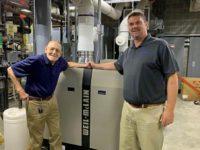
“Boilers are in my blood,” explained 44-year-old Shane Hall, a third-generation Weil-McLain representative.
Hall, of Huntington, W.V., has been a Weil-McLain manufacturer’s rep for more than 25 years, but his involvement in heating and boilers stretches back much further.
“My father and grandfather were both in the business, so I grew up in the industry,” said Hall. “I like to say that I learned from the best.”

Weil-McLain Rep Shane Hall and his grandfather, Herb Godschalk.
Hall’s grandfather, Herb Godschalk, opened his heating company HL Godschalk & Associates in 1968 in Huntington and immediately began selling Weil-McLain boilers. The company handled both commercial and residential projects and installed numerous cast iron boilers and other heating and plumbing equipment across West Virginia.
“We’ve been selling boilers since way before I was even born,” said Hall. “Weil-McLain has a tradition of giving out die cast toy cars, and I remember receiving them as a child as gifts from my grandpa. Ever since I can remember, Weil-McClain has been a part of my life.”
Hall’s father, James Hall, began working with Shane’s grandfather in 1975. A young Shane Hall would help out with the family business as needed.
“My grandfather would pay me to assemble product catalogs, sweep the floor – whatever had to be done,” said Hall. “I believe he paid me a quarter an hour back then. I guess you could say I learned the business from the ground up!”
When Hall’s grandfather passed away in 1993, his father took over the company. Soon after, at the age of 19, Hall began working full-time with his dad.
“I started in the warehouse and worked my way up to inside sales and then outside sales and eventually took over the company,” said Hall.
Both Hall and his father witnessed many boiler product innovations, including the development of high efficiency condensing boilers such as Weil-McLain’s Ultra, and later, Evergreen units.
“They were really innovative products and helped move the entire industry forward,” he said.
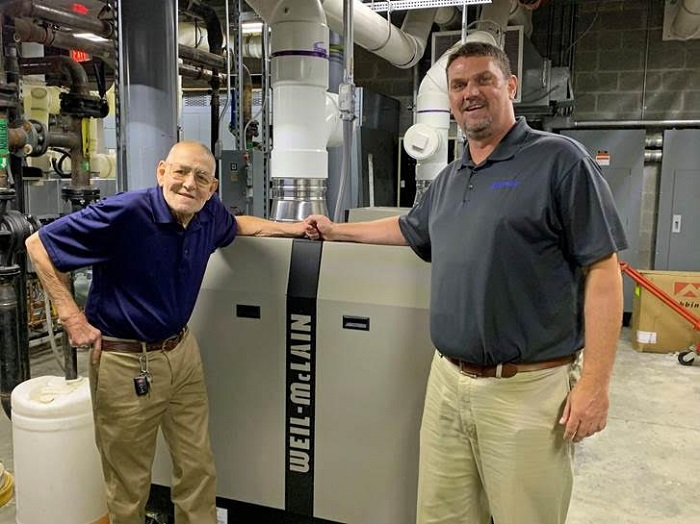
Shane Hall and his father, James Hall.
Hall’s father ran the company until retiring in April 2007. Hall then took over and re-named it Hall Sales Agency. After overseeing its growth for several years, he eventually merged it with Midwest Spec, a conglomerate of three other family-owned HVAC companies.
Today, Hall is a junior partner with Wickliffe, Ohio-based Midwest Spec and still manages the boiler business for the West Virginia territory. In 2015, Weil-McLain asked Midwest Spec to also represent them commercially in the expanded territories of Ohio, Kentucky and Western Pennsylvania, and Hall oversees that business as well.
“Weil-McLain is the only line my grandfather offered that I still sell,” said Hall. “We’ve had a lot of heating and plumbing lines and brands come and go over the years, but that’s the only that has been continuous for us since 1968.
“The only boiler line we sell today is Weil-McLain because the company has such a broad product portfolio ranging from small residential 70,000 BTU units up to large 8 ½ million BTUs on the cast iron side and for high efficiency from 70,000 BTU’s up to 3 million BTUs.”
Hall has overseen numerous residential and commercial installations including at the Rock & Roll Hall of Fame, West Virginia capitol complex, West Virginia University and countless other schools and colleges, churches and homes.
“We had a Weil-McLain boiler at a university that we inspected that at the time was 55-years-old and still functional,” said Hall. “The school had money in the budget to spend and thought it was a good time to upgrade the boiler. It was hard for me to see them pull it out after all of those years because it still worked like a champ!
“Weil-McLain produces high-quality, American-made products, and has always stood behind their line,” said Hall. “You can walk through the foundry and shake hands with the guys that are pouring the iron, and those guys will thank you for selling their product. Weil-McLain has touched so many lives over the years, including mine. It’s really special.”
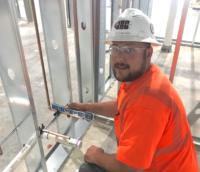
Every year Mechanical Hub is honored to sponsor a PHCC Plumbing Apprentice Contest contestant. For this year’s PHCC Connect—Oct 2-4, Indianapolis—the Hub is excited to support Jed Christner, Chesapeake, Va. by way of Akron, Ohio. Christner was selected to compete in the PHCC competition by competing locally in Manassas Virginia. “I placed third, but due Read more
Every year Mechanical Hub is honored to sponsor a PHCC Plumbing Apprentice Contest contestant. For this year’s PHCC Connect—Oct 2-4, Indianapolis—the Hub is excited to support Jed Christner, Chesapeake, Va. by way of Akron, Ohio.
Christner was selected to compete in the PHCC competition by competing locally in Manassas Virginia. “I placed third, but due to unfortunate events, the winner could not make it; I was asked to represent the state of Virginia in nationals,” says Christner.
 Christner is eager to go to PHCC CONNECT so he can learn from his peers to find better ways to possibly make the job easier, and to make great friends. “It also gives me a sense of excitement to compete against my peers, show and prove my own talents, which I have learned over the years from many plumbing mechanics, especially my teacher from VOTECH, Tony Bertolino,” says Christner.
Christner is eager to go to PHCC CONNECT so he can learn from his peers to find better ways to possibly make the job easier, and to make great friends. “It also gives me a sense of excitement to compete against my peers, show and prove my own talents, which I have learned over the years from many plumbing mechanics, especially my teacher from VOTECH, Tony Bertolino,” says Christner.
Getting Started
Christner says he got started in the industry in a kind of a “non-typical” way. He transferred duty stations from Japan to Virginia Beach while in the Navy. Yet, after serving active duty in the Navy for almost 10 years, Christner was medically discharged.
Christner started a job driving a tow truck in Virginia Beach and, at the time, his neighbor was a plumbing manager for a company. “He asked me if I wanted better money and a way to earn a career. I didn’t ask any questions and said yes.”
Early on, “I rode with him in the morning to the office and he dropped me off at a job site and handed me a box of insulation and told me to get at it,” says Christner, “I picked it up naturally. Billy Batten became my mentor and I strived to be better than him, which probably will never happen, but it’s my own personal goal,” says Christner.
 Christner is currently employed by JRC Mechanical, Chesapeake, Va., and works in the new construction division, which means he does everything from digging trenches to installing underground sanitary, storm, grease interceptor and water lines for new buildings. He installs above-ground domestic water, sanitary and mechanical piping systems for large commercial construction projects ranging from a few thousand to a few million dollars. He is also a plumbing supervisor/foreman.
Christner is currently employed by JRC Mechanical, Chesapeake, Va., and works in the new construction division, which means he does everything from digging trenches to installing underground sanitary, storm, grease interceptor and water lines for new buildings. He installs above-ground domestic water, sanitary and mechanical piping systems for large commercial construction projects ranging from a few thousand to a few million dollars. He is also a plumbing supervisor/foreman.
In his spare time, Christner is an avid outdoorsman and he loves to hunt. “If I’m not hunting then I’m usually fishing or doing something outdoors. I also enjoy traveling with my wife and visiting new places or countries once a year,” says Christner.
Talking up the Trade
Plumbing trade highlights for Christner? He says he takes great pride in his work, especially after seeing the final product of his labor; The crew he works with; seeing different ways of performing the same task with the same end result; and learning every day.
When asked about any drawbacks, Christner says he doesn’t look at anything really as a drawback. “I look at them as a learning experience. The only and best way is to learn from your mistakes. Every day is a great day to be a plumber because we make money at being awesome!”
When giving advice to anyone contemplating the plumbing trade, or any trade at that, Christner says don’t question it and just pursue it. “Other than getting a big fancy diploma or degree, it is a great way to earn an amazing living while having fun. Just remember, everyone has to start at the bottom wherever you go. If you stick it out and prove your worth, you will go far and create a lifestyle that others will look up to and appreciate.”
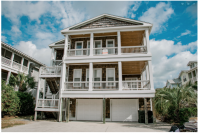
Ward Burton is one of the most acclaimed drivers in NASCAR history with a victory at the 2002 Daytona 500 and multiple wins at Darlington, considered the toughest course on the NASCAR circuit. Burton knows it takes solid, dependable equipment to succeed on the track, and he applies that principle to his home life too. Read more
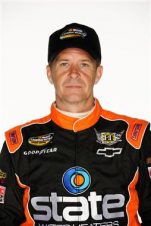 Ward Burton is one of the most acclaimed drivers in NASCAR history with a victory at the 2002 Daytona 500 and multiple wins at Darlington, considered the toughest course on the NASCAR circuit.
Ward Burton is one of the most acclaimed drivers in NASCAR history with a victory at the 2002 Daytona 500 and multiple wins at Darlington, considered the toughest course on the NASCAR circuit.
Burton knows it takes solid, dependable equipment to succeed on the track, and he applies that principle to his home life too. He began his relationship with State Water Heaters in the 1990s when he selected a large State gas unit to handle the hot water needs of his Halifax, Virginia home.
A believer in State durability, Burton partnered with the company as an official ambassador for the State brand. He uses State products not only at his primary residence and vacation homes, but also at all facilities operated by the Ward Burton Wildlife Foundation. Continuing in his father’s footsteps, Ward’s son Jeb is now part of the State racing team in his #8 Chevy.
 When it was time to update the water heater in his North Carolina vacation home, Burton took advantage of the opportunity to select a unit that would reduce both energy usage and his utility bills by installing an 80-gallon ProLine® XE hybrid electric heat pump.
When it was time to update the water heater in his North Carolina vacation home, Burton took advantage of the opportunity to select a unit that would reduce both energy usage and his utility bills by installing an 80-gallon ProLine® XE hybrid electric heat pump.
“It’s the best water heating technology on the market today if you want to start seeing immediate savings,” said Dwayne Kincaid from Benjamin Franklin Plumbing in Wilmington, NC, the company that installed Burton’s new State unit.
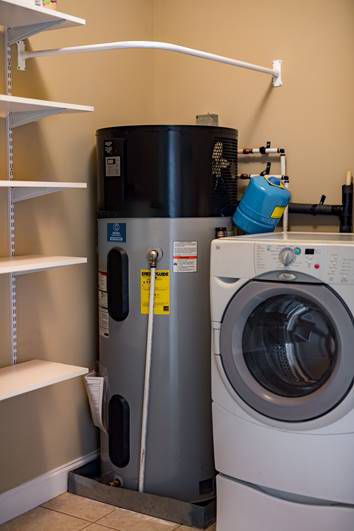 Burton chose heat pump technology because it’s more than twice as efficient as a standard electric water heater. It will lower water heating costs by 70 percent or more, paying for itself in 2-3 years. “That’s just one of the many reasons why I have State water heaters in all my homes and foundation properties,” said Burton.
Burton chose heat pump technology because it’s more than twice as efficient as a standard electric water heater. It will lower water heating costs by 70 percent or more, paying for itself in 2-3 years. “That’s just one of the many reasons why I have State water heaters in all my homes and foundation properties,” said Burton.
Created for the way people live and use hot water, the ProLine® XE heat pump’s four operating modes; efficiency, hybrid, electric, and vacation, will allow for Burton to customize the water heater’s performance to his lifestyle. With just one touch, the heat pump can go into vacation mode, maintaining tank temperature at 60° F during vacations or extended absence to reduce operating costs and provide freeze protection. “It gives owners of vacation or rental properties the peace of mind of knowing that they’re not throwing money down the drain,” says Kincaid.
“Over the years, I’ve done a lot of events with State dealers and contractors,” he said. “They’re great people who make and maintain great products.”
For more information, visit www.statewaterheaters.com.
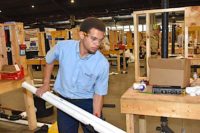
Back in late spring, I had the chance to attend the annual Plumbing Industry Leadership Coalition (PILC) meeting to discuss current issues facing the plumbing industry. PILC is mainly comprised of the largest and most influential associations, professional societies, nonprofits and third-party certification bodies representing manufacturers, laborers, contractors, engineers and water efficiency experts. The efforts Read more
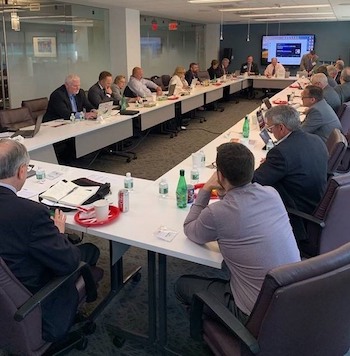
The PILC meeting in DC.
Back in late spring, I had the chance to attend the annual Plumbing Industry Leadership Coalition (PILC) meeting to discuss current issues facing the plumbing industry. PILC is mainly comprised of the largest and most influential associations, professional societies, nonprofits and third-party certification bodies representing manufacturers, laborers, contractors, engineers and water efficiency experts.
The efforts of this group have been very successful, and its message and action items are heavily advocated on Capitol Hill. Successful past campaigns have seen the extension of the WaterSense program, and a Drainline Transport study to exemplify the unintended consequences of water efficiency. In terms of low-flow fixtures combined with plumbing design (slope, water flow, stagnation) in commercial buildings, the question is, how low can you go? The in-depth study revealed that at the current flow rates, no change is imminently needed, but if we continue to go lower, perhaps a new investigation would be in order.
Guest speaker, Dr. Greg Allgood, World Vision, talked about the global water crisis and said that 1,000 kids die every day around the world due to unsanitary water conditions, yet people aren’t outraged anymore because it happens so often. We’ve become desensitized, or perhaps we take a Not in My Backyard (NIMBY) view. Interestingly, according to Allgood, “844 million people don’t have access to a clean water source near their homes.”
World Vision provides safe drinking water to an average of one person every 10 seconds. For example, the organization is currently working on a project that seeks to ensure that 100% of the inhabitants of Rwanda have access to improved water resources. Dr. Allgood expressed a desire to work closer to the plumbing industry.
Action Items
The PILC meeting had its share of action items. The Alliance for Water Efficiency’s Mary Ann Dickinson is working to create a tax exemption status for consumer incentive rebates on water efficient products.
PILC is also seeking input for the development of the National Water Reuse Action Plan. According to PILC, “Federal leadership is sorely needed to help ensure that, as we go forward with utilizing this critically important resource, we make sound, scientifically based decisions that work to prepare our country for the successful utilization of all alternate water sources.”
In order to protect public health and safety as we embark on this collective effort, says PILC, it will be critically important to develop and build on a strong foundation, beginning with the establishment of common terms and definitions for the various alternate water sources.
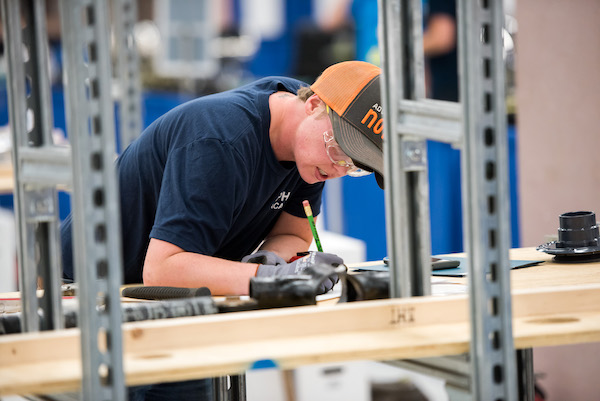
Workplace development is critical.
Currently, alternate water source terms and definitions are being developed in technical silos. Some terms have been generally well defined and are adequately descriptive of the water source. However, other terms, especially those utilizing various colors, such as graywater (greywater) and blackwater, fail to communicate an adequate level of technical accuracy or a reasonable description of the resource that would allow for a clear public understanding.
Concern arises in that terms that were once considered appropriate now convey inappropriate connotations. The term “wastewater,” for example, was appropriate for a time when the goal was to simply separate water used for any purpose in a building from the building occupants as quickly as possible through the building’s sanitary system. In an age where we now seek to convey to the American public that this water is a valuable resource that needs to be carefully treated and reused efficiency in order to help secure our Nation’s water future, this term is clearly outdated and counter-intuitive.
In addition to the terms “blackwater,” “brown-water” and “yellow-water” being inadequately descriptive of the resource, they have potential to reinforce negative stereotypes about people of color. The use of color descriptors for water that is considered a public health risk could be seen as reinforcing a culture where the colors are associated with “bad” versus “good,” which runs counter to the fact that all alternate water supplies can be put to beneficial end uses.
To begin the process of developing a consensus-built terminology for water reuse, PILC suggests the use of an in-person expert workshop to develop terminology and definitions.
Workplace Development
Finally, and perhaps most important, in my opinion, was the topic of workplace development. A task group will be established to focus on how best to reach out to “Generation T” with messaging and career opportunities in the plumbing industry. “Marketing and messaging need to be more poignant.”
Interestingly, I was a surprised to see that not everyone in the room that day thought that workplace development was of major concern. When I arrived back to my office, Michael Copp, executive vice president, Plumbing-Heating-Cooling Contractors-National Association (PHCC), and I discussed this issue with a bit more urgency. When asked, Copp said, “Workforce challenges are not the same across the country and across industry sectors. In general, though, according to the Bureau of Labor Statistics (BLS), the economy will resume a growth rate of 2.5% and construction starts will remain virtually unchanged ($808 billion) in 2019. The number of plumbing and HVAC companies will grow by 1.8% and 2.6% respectively. For every four jobs that are vacated, the industry is only filling one. According to the Bureau of Labor Statistics (BLS), there were 480,600 plumbing jobs back in 2016, with positive growth expected for the next 10 years.”
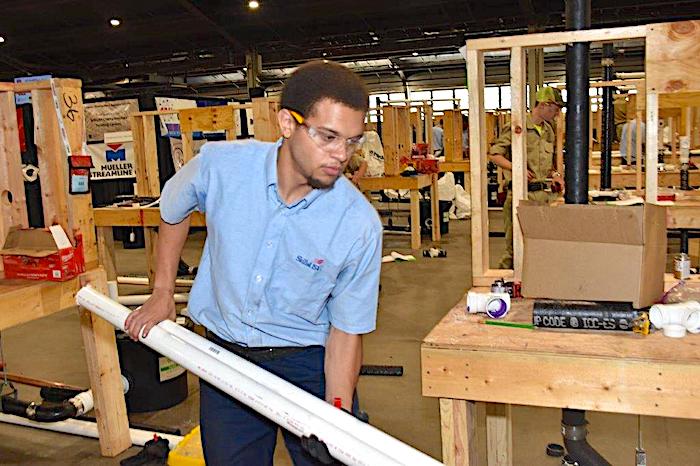
According to Copp, by the end of 2020, more than 50% of businesses entering the construction industry will be minority- or female-owned. He says that we need to reestablish vocational education that was dismantled in much of the country. We need to achieve greater diversity within the skilled-trades industries to include more women, minorities and at-risk youths: all seeking that same level of importance and respect applied to their contribution to society.
According to BLS, “Employment of plumbers, pipefitters, and steamfitters is projected to grow 16% from 2016 to 2026, much faster than the average for all occupations.”
According to Copp, while the narrative is slowly changing from “College Readiness” to “Career Readiness,” we have to overcome what has been a cultural norm in which “For two or three generations, the focus has been to go to college, get a degree and in doing so you will ensure a brighter future with more access to employment,” (Joshua Wright, America’s Skilled Trades Dilemma: Shortages Loom As Most-In-Demand Group Of Workers Ages, 2013).
“We need a movement,” says Copp, “a cultural shift in which parents, guidance counselors and others do not view vocational skilled-trades education/ apprenticeships as a second option to going to college. With the right policy reforms and resetting national priorities, skilled- trade education can lead to additional education and career advancement. The Department of Labor reported on September 21, 2016 that, “Today, 91% of apprentices remain employed after completing their programs, with average annual starting wages above $50,000. The return on investment for employers is substantial, as studies indicate that for every dollar spent on apprenticeship, employers receive average of $1.47 return in increased productivity.”
Copp says that we need to reestablish vocational education that was dismantled in much of the country. “We need to achieve greater diversity within the skilled trades industries to include more women, minorities and at-risk youths—all seeking that same level of importance and respect applied to their contribution to society. We must overcome stereotypes, and starts with better messaging.”

Not only is it home to Major League Baseball’s Colorado Rockies, but also the 50,398-seat venue hosts a full lineup of summer concerts and events when the Rockies are on the road. With so much wear and tear from so many events, the Coors Field facilities team is constantly striving to keep the stadium looking Read more

Not only is it home to Major League Baseball’s Colorado Rockies, but also the 50,398-seat venue hosts a full lineup of summer concerts and events when the Rockies are on the road.
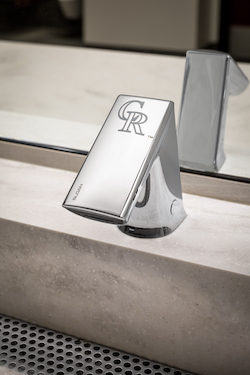 With so much wear and tear from so many events, the Coors Field facilities team is constantly striving to keep the stadium looking just like it did on Opening Day over 25 years ago. To begin the 2019 season, the restrooms on the club level and in the clubhouse needed a renovation. For this major project, the facility turned to its proud partner Sloan for an upgrade.
With so much wear and tear from so many events, the Coors Field facilities team is constantly striving to keep the stadium looking just like it did on Opening Day over 25 years ago. To begin the 2019 season, the restrooms on the club level and in the clubhouse needed a renovation. For this major project, the facility turned to its proud partner Sloan for an upgrade.
A Grand Slam for Sustainability
With millions of people going in and out of the stadium each year, durability was a key factor in Coors Field’s restroom specifications. That’s why the facility knew that Sloan urinals and water closets—each equipped with Sloan Royal 111 ESS Sensor Flushometers—were the right fit for the renovation. Sloan’s ST-2459-STG elongated wall-mounted water closets (78 in total) and SU-7009-STG washdown urinals (42) provide both the club level and clubhouse with durable fixtures that achieve a sustainable 1.28 gallon per flush (gpf) and 0.125-0.5 gpf, respectively. Not only do Sloan’s flushometers promote water savings, but the touch-free products maintain a more sanitary environment for players and fans alike.
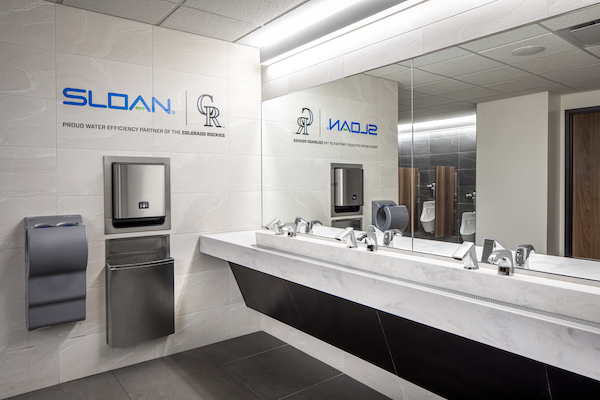
Engraved Aesthetics
During a trial run in high-traffic areas of Coors Field the previous season, the hands-free feature and durability of the BASYS Faucets stood out to the facilities team. Additionally, it was the faucets’ aesthetic appeal that set them apart from the competition. Coors Field specified 12 Sloan Designer Series DSWD-84000 Sinks accompanied by 42 BASYS Faucets throughout the club level. With the Rockies’ logo engraved on each product, Sloan’s faucets now extend the team’s brand into the restroom. The branded faucets greet club level guests with a unique and elegant aesthetic. The result is a memorable restroom experience which promotes the Rockies’ brand, even when fans are away from their seats.
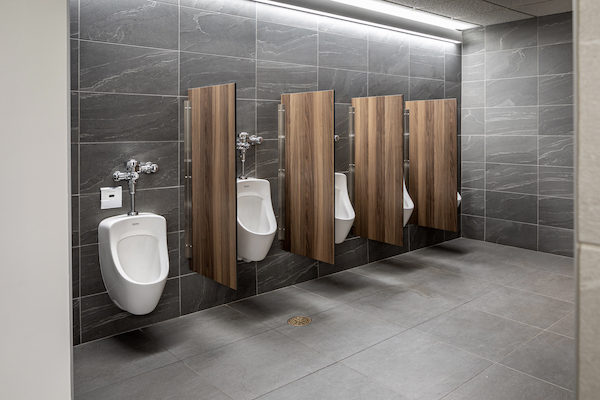
“The durability and water savings of Sloan products have been a major boost for the ballpark,” said Allyson Gutierrez, Coors Field Senior Director, Engineering and Facilities. “Sloan’s ability to engrave the Rockies logo on our club level faucets is a great additional benefit and has been very well received by our fans.”
